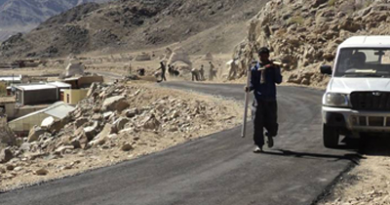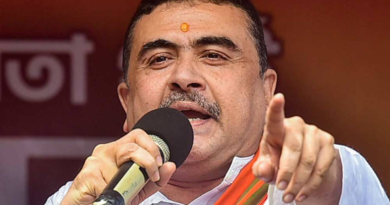FAKE News: How To Tackle It ?
THE issue related to circulation of fake news by print and visual media in India remains even after Prime Minister Narendra Modi stepping in to do damage control on the guidelines issued by his Information and Broadcasting Minister recently .PM is justified in getting the order spiked following nationwide outcry against it nicknaming gag order. Unhappy over the Information & Broadcasting Ministry’s directive to cancel the accreditation of journalists by Government of India who will be found “propagating” fake news, the PM ordered the I&B Ministry to withdraw its contentious guidelines. The PM intervened after I&B Minister Smriti Irani faced widespread criticism by journalists and Opposition parties who are prima facie right in dubbing the norms as an attempt to “muzzle” the free press. The Prime Minister has instructed his I & B Minister to restrain from interfering or giving directions to the Press Council of India (PCI) with regard to its powers in taking action against fake news or wrong news or any actions related to the complaints received on the news reports. After Prime Minister’s orders, the I&B Ministry issued a statement saying Press release regarding fake news put out by it “stands withdrawn “and the matter should only be addressed by the Press Council of India. The Prime Minister was also of the view that the Government should not interfere in the matter. As per the amended the guidelines on accreditation of journalists, if the publication or telecast of fake news was confirmed, accreditation of the concerned journalist would be suspended for six months for first violation and for one year in case of a second violation. But the problem with the Press Council of India is that it is mandated to deal with the print media and lacks wherewithal of its own. The Press Council of India was constituted on 4 July 1964 by Parliament to regulate the press in India. The basis at that time was the Press Council Act resulted from the recommendations of the First Press Commission of India (1952-1959). The stated objectives were “to help newspapers maintain their independence” and ensure that the press does not lower its standard. The media scenario was totally different in the 1960s as 24x 7 news channels was long way to emerge and who could have envisaged emergence of social media which has become a tool in the hands of political parties ? Unfortunately, the rival political outfits very often post unsavoury and unverified comments to run down their political opponents. For third violation, it was proposed to cancel accreditation of a journalist permanently. The country’s oldest political party is not wrong in terming the order as manifestation of fascism and an attempt to “muzzle” independent voices through “fallacious” rules. “The Government has no mandate to control the Press. The media is also worried about growing incidents of fake news but the Press Council is the right platform to deal with complaints regarding any fake news,” president of the Press Club of India Gautam Lahiri said. He is right but should have also pleaded for granting more legal and judicial power to PCI. As the media, particularly the TV channels, are racing against time to create exclusive stories for improving TRP ratings and leaders are hungry for publicity ,it is very often alleged by Indian bureaucrats as well ministers that their versions on many events are distorted. There is allegation about conducting what is called media trial. Anyway, the guidelines related to fake news issued by the Information and Broadcasting Minister and later its withdrawal at the instance of the Prime Minister has brought the issue on the public domain besides generating debate. Whenever In the past the issue was flagged, the media had pleaded for self censorship not any censorship imposed by the government. It is a valid point. No authority should try to browbeat or impose certain guidelines on the media in India, a functioning democracy with multi languages proud of being a multi- religious nation. One has to admit that for the success of a democracy, a free media is prerequisite. Profession of Journalists cannot be treated at par with other professionals. But it also cannot be ruled out that media people should individually and collectively introspect about succumbing to planted and unverified stories to jack up TRP ratings at the cost of the sacred profession. As the Indian Information Broadcasting Minister Smriti Irani has said her doors are open to receive positive suggestions from the journalist community to take on the menace of fake news. She should try to reach out not only to the media barons but also all those engaged in collecting and disseminate news. As we aware “Fake” news is not a problem confined to India. The desired objective will not be achieved if the issue is left only to The Press Council of India, a statutory & quasi-judicial body which acts as a watchdog of the press. It is empowered to adjudicate the complaints against and by the press for violation of ethics and for violation of the freedom of the press respectively. Besides, the issue should not be viewed from any political prism. (Courtesy: musingofaseniorjournalistwordprss.com)




